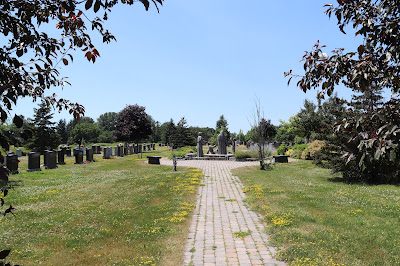MÈRE ÉLISABETH BRUYÈRE
En 1845, pionnière canadienne-française de la cité de Bytown (aujourd'hui Ville d'Ottawa), Mère Élisabeth Bruyère met sur pied écoles, hôpitauz, orphelinats, hospices, tant dans sa ville adoptive que dans d'autres régions de l'Ontario, et du Québec ainsi qu'en Nouvelle-Angleterre. Ici, une rue, des écoles et une institution de santé portent son nom.
Citations de Mère Bruyère:
« Que tout ce que vous voyez vous serve de moyen pour vous élever vers Dieu; en regardent un champ, un prairie, une fleur, que tout vous porte à Dieu. » août 1872
« Avec une bonne volonté, on peut faire beaucoup. » 2 avril 1876
MOTHER ÉLISABETH BRUYÈRE
In 1845, Mother Élisabeth Bruyère, a French Canadian pioneer of Bytown (now the City of Ottawa), established shcools, hospitals, orphanages and homes for the elderly in her adopted city and other regions of Ontario and Quebec as well as New England. Here, a street, schools and a health care centre are named after her.
Quotations from Mother Bruyère:
"May everything you observe direct you towards God, seeing fields, meadows and flowers, may all your thoughts be of Him." August 1872
"Where there is good will, much can be accomplished." April 2, 1876
Le Monument Bruyère — d'Youville
Sainte Marguerite d'Youville (1701-1771) est née à Varennes, Québec et fonde la congrégation des Sœurs Grises de Montréal en 1737. Mère à la Charité universelle, elle est la primière personne d'origine canadienne à être canonisée, le 9 décembre 1990.
Élisabeth Bruyère (1818-1876) est née à L'Assomption, Québec. Membre de cette congregation, elle est désignée pour établir une mission à Bytown en 1845. Elle fonde une communauté qui prolonge l'esprit de Marguerite d'Youville, les Sœurs de la Charité de Bytown, dites Sœurs Grises de la Croix aujourd'hui appelées Sœurs de la Charité d'Ottawa. À travers son œuvre de pionnière elle s'insère dans l'histoire religieuse et sociale d'Ottawa et de la région. Elle établit une école bilingue pour jeunes filles, un hôpitale général, un pensionnat, un orphelinat, un foyer pour personnes âgées et des cours du soir pour les mères de famille. Notoire est son dévouement auprès des pauvres, des malades à domicile et des immigrants. Sa charité atteint son apogée lors de l'arrivée massive d'immigrants irlandais atteints du typhus en 1847. Les trois figures de bronze qui l'entourent symbolisent sa compassion humanitaire et sa contribution historique à l'Église et à la société de l'époque.
Le monument est une conception de l'artiste-sculpteur canadien, Achim Arthur Klaas. Ce chef-d'œuvre fut dévoilé le 30 mai 2007.
La Fondation du Cimetière Beechwood
Le Comité Bruyère-d'Youville
Bruyère — d'Youville Monument
Saint Marguerite d'Youville (1701-1771) was born in Varennes, Quebec and founded the Grey Nuns of Montreal in 1737. Mother of Universal Charity, she was the first Canadian-born woman to be canonized on December 9, 1990.
Élisabeth Bruyère (1818-1876) was born in L'Assomption, Quebec. She was a membr of the Montreal Order, which was designated to establish a convent in the small lumber town of Bytown in 1845. She founded an order in the spirit of Marguerite d'Youville, the Sisters of Charity of Bytown, also known as the Grey Nuns of the Cross and today called the Sisters of Charity of Ottawa. Through her pioneering work she made history by establishing the first religious and social institutions in the region: a bilingual school for young girls, a general hospital, a boarding school, an orphanage, a home for the aged and night classes for mothers. Her dedication to the poor, the sick at home and the immigrants is well-known. Her charitable work was most remarkable with the arrival of Irish immigrants suffering from typhus during the 1847 epidemic. The three cold cast bronze figures surrounding her are symbols of her humanitarian compassion and historic contribution to Church and society.
The monument was designed and sculpted by Canadian artist Achim Arthur Klass and unveiled May 30, 2007.
Beechwood Cemetery Foundation
Bruyère-d'Youville Committee
 |
| Élisabeth Bruyère |
 |
| Marie-Marguerite d'Youville |
 |
| Plaque acknowledging donors for the monument. |
















